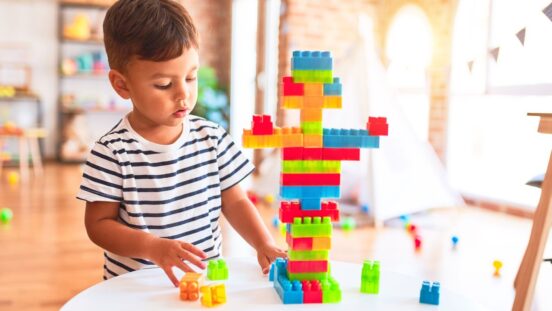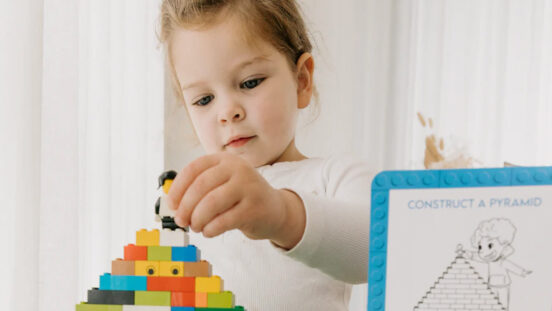Surviving life with a toddler!
Say farewell to your placid newborn. By now your baby is a running, talking, whirlwind of passion and opinions. Here's how to survive the most exciting, messy time in your child's life.
So there you are, Saturday morning at the supermarket. What started as a mindless zigzag up the cereal aisle has been interrupted by a human blockade. Your child: a sprawling mass of spittle and fury. Is she in pain? Is she being naughty? Why is everyone looking at you like that?
And then it hits you. Oh. My. God. My baby is a toddler.
There are, of course, other signs. The stage starts for many children as soon as they start walking. It's the first in a series of skills that sees children taking responsibility for themselves — and they can't get enough of it. "As soon as Ben could do something once for himself, he'd never let you do it for him again," says Michelle, 27.
"Getting dressed was fine until we got to the socks — which he wanted to do but could never quite manage. Mealtimes were totally crazy. He'd take so long that whatever food hadn't landed down his arms and legs would go cold. And don't even get me started on his 'helping' with the dishwasher. But it [is] cute — and being able to watch your child pick up skills we take for granted is a real privilege."
"The second year of life — between ages of one and two — is enormously busy, intellectually, emotionally and physically, as your child develops a sense of self, becomes more independent and gets to grips with life on their feet," says child psychologist Dr Pat Spungin.
This period of developing autonomy is also typified by toddlers learning to talk and make choices – both of which are important milestones. So how can you survive tiny fists, sudden regressions and Olympic-standard stubbornness? Read on…
The best way to stop a child turning her nose up is to introduce her to a variety of flavour and textures from the very start of introducing solids, but it's never too late to retrain your child's tastebuds. "Offer small portions often,: says Pat.
"Toddlers will often refuse things the first time — to prove that they can — but that doesn't mean they won't eat it next time." You may have to offer certain foods several times before your child will eat it. "Never say, 'you don't like such and such, do you?'. Instead, give it and say nothing," says Pat.
"A toddler will just believe you when you say they don't like broccoli, for instance, rather than making their own mind up."

Oh. My. God. My baby is a toddler!
Saying "no" is your child's way of taking control. "Being a toddler has similarities to being a teenager," says Pat. "It's a time when a child learns to assert herself — an important life stage. Parents must learn to channel this assertiveness and set boundaries." So rather than seeing constant NOs as a sign of negativity, respect that she's ready to make some choices for herself.
Improve your child's vocabulary — and therefore ways to express her wants. Nursery rhymes and singing are very helpful — rhyming helps children get an ear for language and hearing the musicality of speech helps children respond to the sound of whole words rather than phonetics. But what of older toddlers who are genuinely refusing rather than being assertive?
"Give them a choice that's not really a choice," says Pat. "Offer two alternatives where the outcome doesn't really matter to you, such as playing on the swings or in the sandpit. This way they feel in control of their life but it's within your boundaries."
Overtired and emotional
If your child sleeps well at night but is still grouch during the day, perhaps she's not getting enough sleep in the day.
"When Ella was 18 months old she suddenly stopped having her usual three naps a day and would either go through the whole day fighting exhaustion or suddenly just lie down and go to sleep," says Claire, 30.
"I'd arrange a play date but she'd nod off in the pram on the way there and spend the whole visit snoozing in the hall. If she did stay awake she'd get ratty or tearful."
Toddlers need their naps to recharge their batteries and by 18 months most will move to just one longer nap lasting one to two hours, usually in the middle of the day. Having a familiar series of steps leading up to nap time helps. Set the same nap time every day and implement a routine. This will give your child a series of triggers that will help her feel secure and also encourage her to feel sleepy.
Reading a story, bringing out a favourite blanket or closing the curtains can help.
WATCH: 5966129417001. Continues after video …
Not sharing
Toddlerhood is a time of developing social skills such as turn-taking and sharing – but these are skills they learn gradually. From about two-and-a-half children will start to play together, rather than alongside each other.
But parents will still be required to act as mediators. It's up to parents to show their children how to share by leading by example — getting down and playing with your child and their friends and showing how it's not the end of the world to let another person take a toy you're using.
Join in with dressing up, role-playing games and simple puzzles. It will increase your bond as well as help develop your toddler's social skills and ability to focus on activities.
Clinginess
Parents provide a secure base from which to explore the world and from 18 months children begin to break away from it as the urge to be independent grows. However, this can be quite frightening for toddlers.
The security they felt as a baby came from being constantly cared for by the same person, but by this age other people may start to look after them with different routines. When you are changing a lot yourself — as toddlers are — this can be a step too far and can cause some children to become distressed when their parents go out of sight, even for a minute.
This is known as separation anxiety. Toddlers can react to change by suddenly returning to baby behaviour because that time felt more reassuring. Children this age need some things to remain consistent and predictable, such as the same story before bedtime.
"Mia had been coming along really well — hitting all her developmental milestones," explains mother Joanne, 28.
"Then when she got to about 15 months she suddenly wanted lots of cuddling and picking up — it felt like a real step backwards. And though she likes to be a 'big' girl, sometimes all she wants is a bottle and a cuddle."
Underneath the pretend-grown-up games, crazy tantrums and puzzling logic, they're still our babies.
How to deal with a tantrum
Think of toddlers and most of us will think of tantrums, where your sweet little baby turns into a biting, screaming ball of anger. Make sure they're safe. An angry toddler will give no thought to stairs, busy roads or any other hazard. If your child could hurt herself, your first priority is to move her somewhere were she can let off steam safely.
Identify the trigger and solve it. Most tantrums are caused by frustration (have you listened to your toddler's request?), but tiredness and trying to get something they want can also trigger them. If you sense your child is starting to become upset or angry, try to find a compromise — perhaps you can swap the toy they want you to buy for a chance to play with your keys or phone.
Don't react. By telling a child off, you're not only wasting your time — it's impossible to reason with a toddler — but you're also establishing a bad habit.
"By shouting you are still giving them attention, even if it's negative," says Pat. The best thing is to ignore bad behaviour.
"Literally turn away from the child." Don't be embarrassed or take it personally. Embarrassment or guilt can lead many parents to give in or try to placate a child with a biscuit, sending the message that tantrums mean treats. Establish good habits by giving attention and rewards when your child behaves well.




